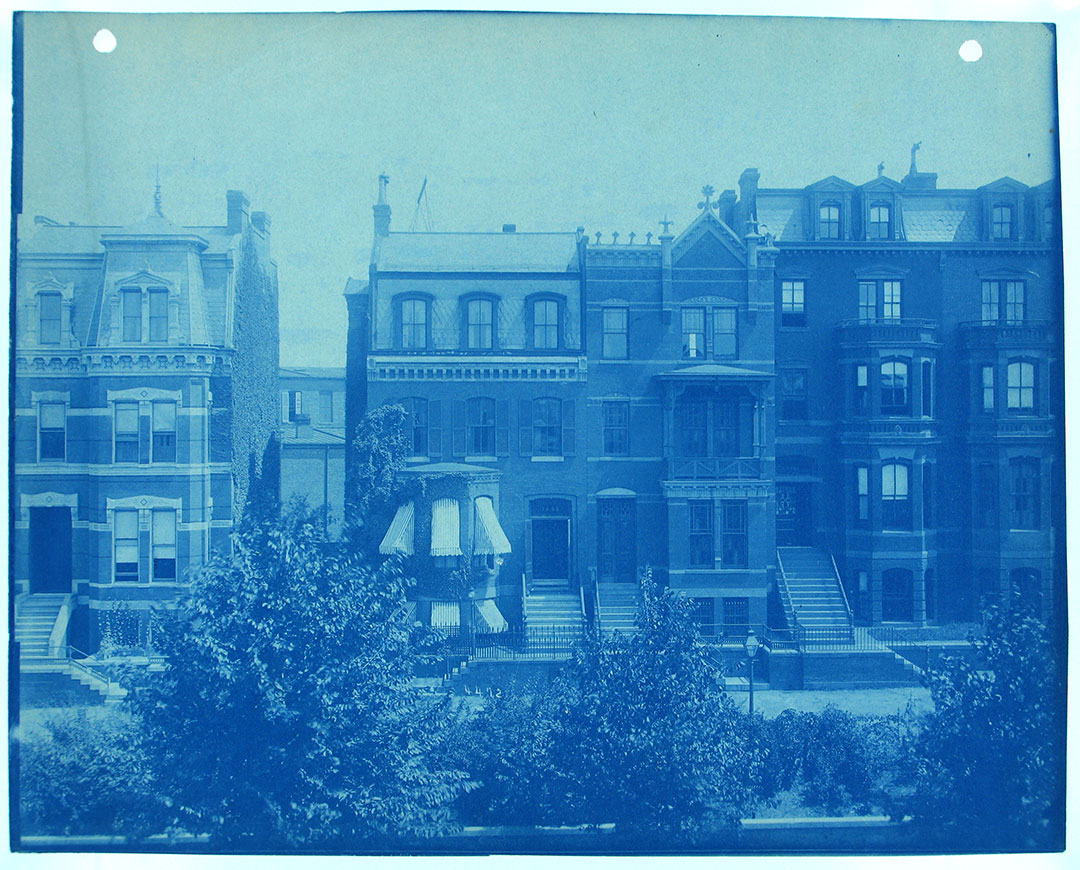
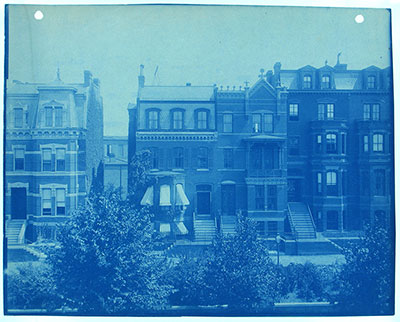
It’s Tuesday, March 25, 2008. It’s 4 in the afternoon. You can see the news vans and police cars down the street. You already know what happened; you were told over the phone. Your friend who lives up the block comes with you. The neighbors stand outside their houses, all the old Italian ladies in their usual flowered cleaning dresses. All your friend can say is “Holy shit.” He leaves you with “See you tomorrow at school.”
The homicide detectives are drinking coffee just outside the yellow tape perimeter. You say, “I live here.” They make you show ID. Your last name matches your father’s. They look at your face and let you through.
The detectives give you some time with your dad. The whole house smells chemical, but you can’t place what it is exactly. Your dad tells you it all went like this: It was around 11 A.M. He was getting ready for work and something didn’t smell right. He thought maybe there was a gas leak and tried calling down to the basement apartment for the tenant: “Michael?” He called the name a few times. When he went downstairs, there was ammonia cleaner and blood everywhere, blood all around Michael. Your dad ran upstairs, called 911. They made him go back down to try to resuscitate Michael. Your dad says he thought that maybe he had killed himself.
“Well, he’s dead” — your dad remembers one of the paramedics saying this just a few steps into the apartment, after seeing drag marks over the wall and along the floor. They called the police, who got homicide involved. You dad called your mom, who’s a lawyer, who knows other lawyers, just in case he needed one.
The detectives ask you if you remember the smell from the morning. You say you don’t. You say you just found out about the ammonia, but you think you’ve never smelled anything quite like this.
"He tells you the killer won't be coming back, even if he does have the key to your house."


The detectives — there are three of them — ask you to detail what you remember from the night before to the morning you left the house. All of them take notes. You say you remember watching TV. You remember hearing yelling from the basement and exchanging glances with your father, thinking the argument was too loud for you to stay just a floor above it. You remember going upstairs. You remember a loud crashing noise you thought may have come from the house next door. “It was either that or make-up sex from downstairs,” you tell them. The walls are thin in your house.
You tell them that the man yelling had been here before. You remember standing at the door that divides your house and the tenant’s, in a sort of hushed laughter with your friend as the man rapped along with Eminem about a week ago. You remember the the time he smoked cigarettes in the basement and stunk the house up. They ask you if the man yelling was white, hispanic or black. You say you’ve never seen him. They ask if you could just tell by his voice. “How am I supposed to know,” you tell them. But all you think is that only a white guy would rap like that.
The lead detective gives you his card and tells you to contact him if anything comes up. He tells you the killer won’t be coming back, even if he does have the key to your house. The detectives don’t let your family change the lock to the apartment. They put an official seal over Michael’s door that threatens to fine intruders.
Your home phone rings on and off the whole night. When you ask your parents if you should answer it, they tell you to ignore it. They tell you the reporters just want a story. The Italian grandmothers across the street have been talking to the news all day, talking about how the area’s changed.
That evening, the forensic team keeps a large truck parked outside your home. They wear white jumpsuits that cover everything except their faces. They wear masks over their mouths. They work until late that night, and the truck hums so loud it keeps your family up. The body sits in your basement until 1 in the morning, when the forensic team wheels it out of the basement on a stretcher. The news team gets their video. The silence at the end of it all, alone in your bed, feels like the scariest part. You go to your parents bed that night, and they let you lie down even though there’s no room for you, even though you can’t go to sleep, but you never tell that part of the story to anyone.
"Every now and then, someone catches your eye at the drugstore or at the subway station and you almost swear that he did it."
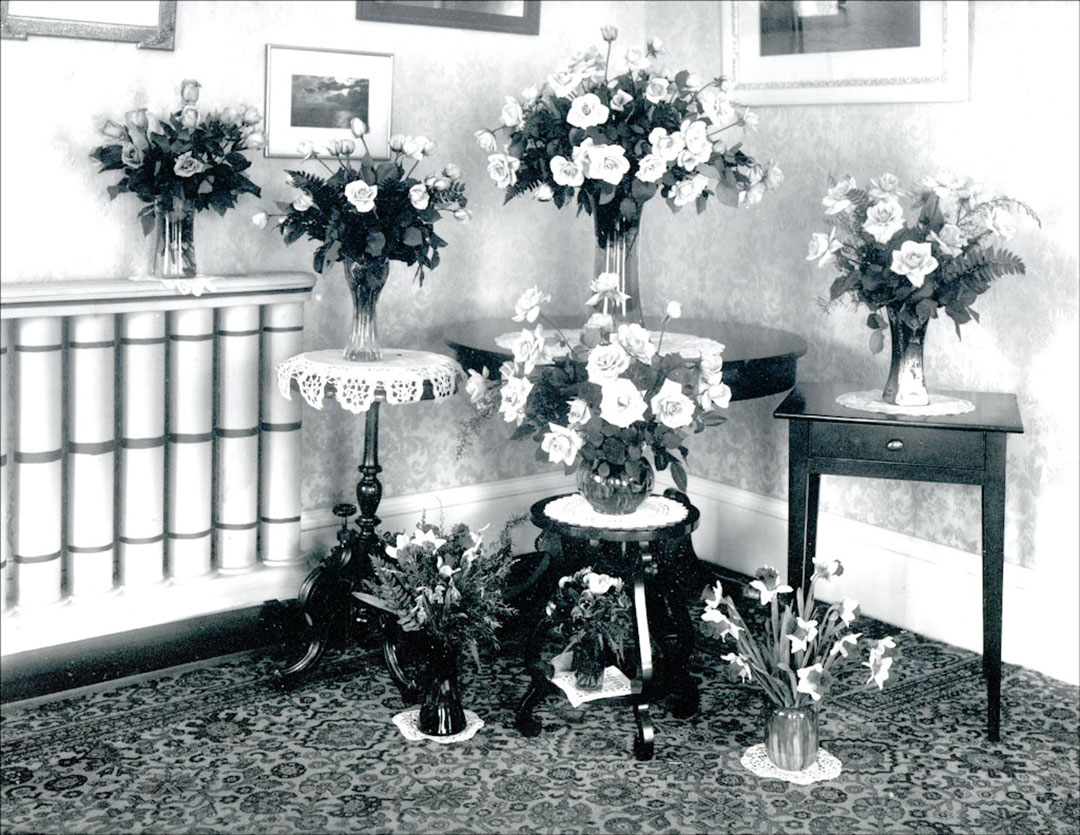
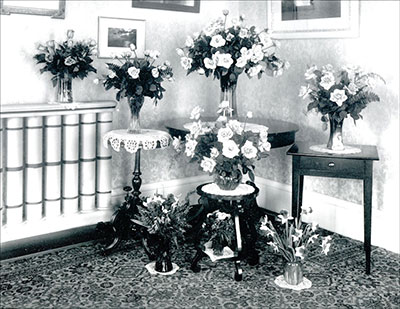
The next morning, you go to school even though you’re told you can stay home. The police tape is still up by the time you get back to the house. Neighbors leave flowers and candles at your doorstep. You have to move the collection aside to open your gate. The tape gets taken down sometime that week, but a bit remains clinging to the tree and to the fence. Nobody takes that down.
Over the next week, the detectives are in and out of your house. They come and go as they please. One time, you see them out in your backyard, studying the plastic tool shed. They ask you questions casually: “Did you get any indication that Michael was a big drinker?” “Did Michael ever receive any mail addressed to anyone else?” “Did you ever see Michael cross-dress?”
The next morning, your dad drives you and your sister to school through Battery Tunnel, and the three of you try to remember things for the detectives. You and your dad remember receiving a letter for someone else, but you can’t recall the name. You try to remember at school when you’re bored, but the memory doesn’t come back. Every now and then, someone catches your eye at the drugstore or at the subway station and you almost swear that he did it.
"You and your family start to refer to the killer as Michael’s jealous lover."


You eavesdrop for clues. You realize you saw Michael out with a guy once, but he had a hood pulled over his head. You keep thinking you’ll see this face you don’t know. You can’t explain it, but Beirut becomes the soundtrack for everything you do. You listen to it on the subway on the way to school, on the way home. You feel it with everything.
The detectives place the time of death between the crash you heard and the moment your dad found the body. When news sources cover it, they say Michael’s throat was slit, his back stabbed several times. The papers call him by his legal name: Sanjeev Seekoomar. Some papers spell his name wrong. Some papers claim the house was ransacked and robbed. Other papers claim that he was killed by a male prostitute. You and your family start to refer to the killer as Michael’s jealous lover.
You start to notice the people on the street who slow down to look at your house, people rubbernecking in their cars. Strangers start leaving magnets on your gate advertising homicide clean-up services. The detectives finally let you change the lock on Michael’s door.
You get strange visitors, like one man who says he knows about the killing but would love to rent the apartment and just needs a tour of the space. One time, while browsing Google for answers the detectives aren’t offering, you find pictures someone took of your house. You read their blog entry. You hate how the author describes the visit like an adventure. You hate how he describes his curiosity as “macabre.”
"You think about all the people who will have a dead man’s clothes and not even realize it."
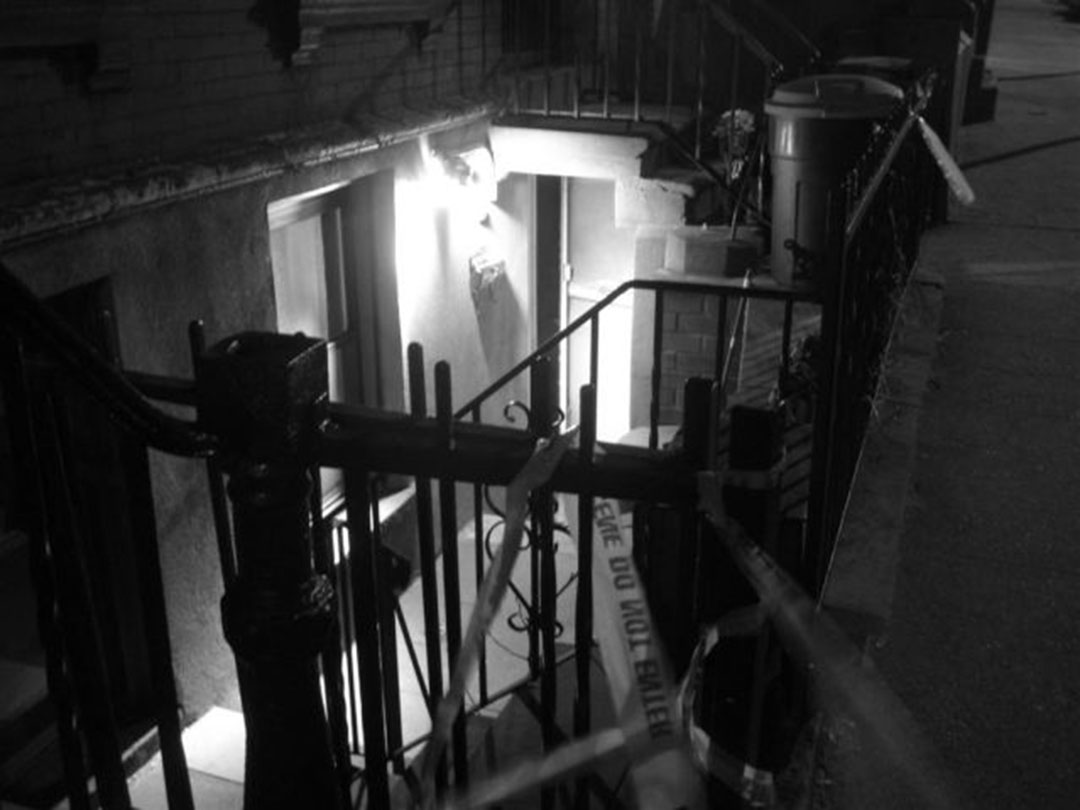
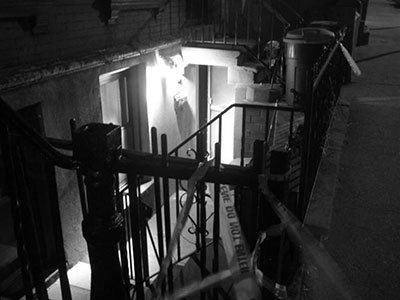
Michael’s family comes one day to collect his belongings even though the mess is still down there. They aren’t even direct relatives. His step-sister sobs the whole time. His step-father is stone-faced. He smokes cigarettes in the basement crime scene, and all they collect is a small flatscreen monitor. You all stand in a circle outside the house — you, your dad, the stepfather, the detectives and Michael’s lawyer. The stepfather takes long drags from his cigarettes, lighting a new one each time he finishes the last. He tells you what a good boy Michael was. He tells you about all the times he used to buy groceries and cook dinner. You remember the way he used to fill the house with the smell of onions sauteed in butter.
One of Michael’s friends, an ex-boyfriend, stops by and takes more than his family did.
When the time comes, the detectives let your parents hire a cleaning crew to take care of the mess. The basement gets a fresh coat of white paint on its walls. Your family tries to give the rest of Michael’s things to the Salvation Army. You see the basement again for the first time this way, with all the boxes of Michael’s things. The men from Salvation Army come by with a truck and load all the things they can take: Michael’s shoe collection, his books, his clothes. You think about all the people who will have a dead man’s clothes and not even realize it.
You start leaving lights on around the house. You start locking doors at every opportunity. You don’t really sleep for two weeks. Then the homicide detectives let your family know that they’ve arrested the killer. They tell you his name. They tell you where they found him. Years later, you learn they caught him through a “trap and trace” on Michael’s phone. You often think about how there was just a door between your apartment and Michael’s — one that may not have even been locked.
In the fall, you will go to college and the way you lock doors will get on your roommates’ nerves. You will lock them out during trips to the bathroom down the hall. You will lock them out while you take naps. When you hear a couple yelling at each other in a dorm room nearby, you want to leave, you practically call campus security. Later you find out its some sort of joke between friends to yell at each other like that. It’s just a thing people do.
When Halloween comes, your parents tell you that the neighbors spotted a few boys trying to break into “Michael’s apartment.” Your family calls it that for years.
It’s the kind of thing that follows you. You get out of jury duty on a domestic abuse murder trial. Your house continues getting mail for Michael: bills, credit card offers, letters you don’t open. Three years later, you find a string of emails in your spam folder that start off “Hi, it’s Michael.” Some days you believe in ghosts.
Your family never gets rid of everything Michael owned. You keep his music speakers, his flowered apartment divider, his spices, his plates, his diaries. You read all the parts that aren’t written in another language and try to understand what went wrong. You try to understand how something so fucked up could happen to someone so quiet. You think back to 12 Angry Men, to all those men arguing about whether or not someone heard the suspect yell “I’m going to kill you!”, and you tell yourself that doesn’t happen. You think about how no one can ever anticipate these kinds of surprises. This is something you’ve learned to remind yourself.
Four years later, you agree to be a witness in the trial. You worry you won’t have enough to give them, but you agree to do it. Part of you just wants to see what the killer actually looks like. The guy pleads insanity, but it doesn’t work. Then, one day, the trial settles before you testify, out of court on a plea bargain. He gets a 20-year jail sentence for first degree manslaughter. You never see his face.
"... one day, you actually like it down there."


The next year, you graduate from college. Your parents hire workers to tear out the linoleum tiles in that apartment that have had stains in them for years. You all assume the stains are from a hot spot on the floor. When there is new flooring, you move down there with your boyfriend. The rent in the city is too expensive to live anywhere else, but your mom hires a feng shui guy who instructs you to face your bed north for good luck. You keep calling it “Michael’s apartment” until you don’t. You make yourself at home. You replace his old shower curtain. You buy new blinds. You invite friends over. You stop using his silverware. And one day, you actually like it down there.
Freddie Moore is a Brooklyn-based writer. Her full name is Winifred, and her writing has appeared in The Paris Review Daily and The Huffington Post. As a former cheesemonger, she’s a big-time foodie who knows her cheese. Follow her on Twitter: @moorefreddie
(Image credits, from top: Smithsonian Institution, Keene Public Library, The U.S. National Archives, wally426, The Library of Congress)